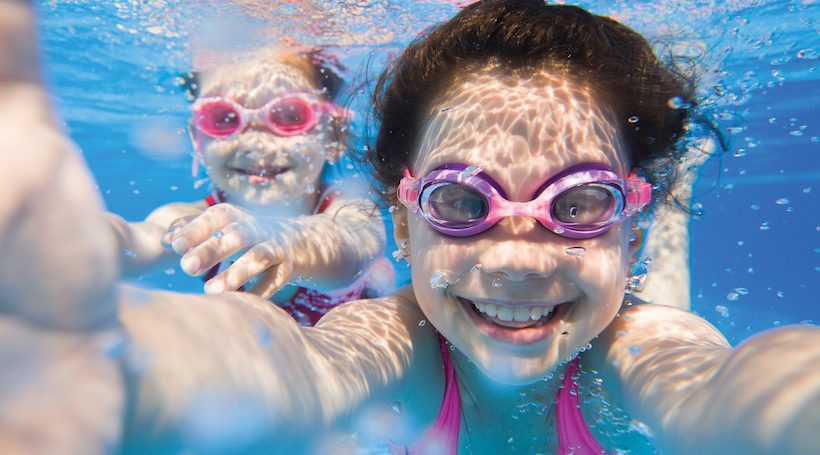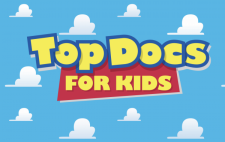On his first day of summer camp 8 years ago, 11-year-old Tom Murtha nervously settled into his bus seat for an hour-long ride. He was beginning a journey that would change him in ways his younger self could not have understood.
Tom spent the next 8 fun-filled summers at the JCC Camps at Medford, first as a camper and later as a counselor. During the 10 months between camp sessions, he dreamed of the summer oasis where sports, fishing and swimming were as important as academics are during the rest of the year. He only recently realized just how much he was learning while having such a blast.
“I have tools to handle confrontation and uncomfortable situations, and I can now put myself out there or resolve problems myself,” says Tom, now 19 and a sophomore at Northeastern University.
“It wasn’t until I got to college that I realized how important these simple skills could be – and how few people had those same abilities,” he adds.
His experiences sound about right to the American Camp Association (ACA), which is studying how summer camp benefits kids well into their adulthood. Among findings: the experience helps kids build key professional skills they may not find in any other setting.
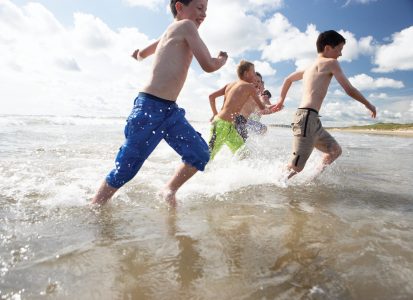 Top skills employers look for in young employees – teamwork, problem-solving, decision-making and communication – don’t come naturally in today’s world. But they can all be learned at camp, says Andy Pritikin, owner of Liberty Lake Day Camp in Bordentown.
Top skills employers look for in young employees – teamwork, problem-solving, decision-making and communication – don’t come naturally in today’s world. But they can all be learned at camp, says Andy Pritikin, owner of Liberty Lake Day Camp in Bordentown.
“Camp is this environment where kids are put together with people they don’t know and are asked to try new things, which is a situation that is going to come up again and again throughout their entire lives,” says Pritikin, a former president of ACA of New York and New Jersey. “When they go to college, when they get a new job, when they move to a new city – they have to know how to handle that.”
Summer camp allows you to grow socially and emotionally in ways you don’t find in school, where academic pressures can get in the way, says Sara Sideman, associate director of JCC Camps at Medford.
Those benefits start early, with many camps offering programs for kids as young as 3 years old.
“Being away from their parents for the first time can be really difficult for kids and teens,” says Sideman, whose 5-year-old son will be heading into his third year at camp this summer. “I love the idea that my son started at camp before he started public school. By the time he went to kindergarten, he was ready to kiss me goodbye and get on the bus with all the confidence in the world.”
What holds many parents back, Pritikin says, is the thought that maybe their child is the exception. They’re afraid their kid might have trouble making friends or might get homesick. And that, he says, is exactly when you should send them to camp.
“We need to give our kids opportunities to try new things and sometimes fail,” he says. “That’s how they learn and grow, and that’s the kind of independence they’re going to need when they eventually go out on their own.”
“I get kids who come to camp, and their parents may say their daughter is a picky eater and won’t eat the camp lunch,” Pritikin continues. “But when she’s at camp and she has this counselor that she looks up to and all the other kids in her group are eating, she’ll eventually try it. And next time she’s confronted with something new, she’ll try that too.”
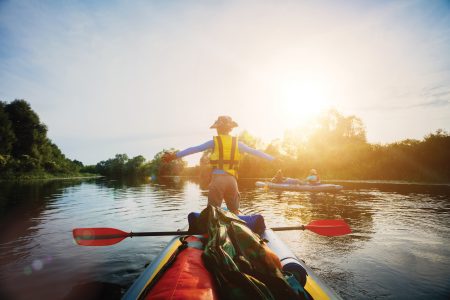
The ACA found that counselors get many of the same benefits from summer camp.
“Counselors learn just as many life and job skills from summer camp as campers,” says Sideman, who notes that a large percentage of summer staff at the JCC in Medford were former campers themselves. “Learning to understand the social and emotional needs of others and how to work with different types of people develops leadership and teamwork skills they’ll need no matter what field they go into.”
Through the years as they age into new activities or responsibilities as campers, whether it’s being old enough to tackle the rock wall or joining a young leadership program, campers and staff turn into role models and leaders.
“These kids come in, and even if they had a tough start, after a couple weeks they start to thrive,” says Pritikin. “Seeing kids year after year, especially those kids who had a hard time at first, 10 years later being a leader in their field is so rewarding.”
The parents, it seems, notice too.
“A few years ago, a parent came to me and said, ‘My daughter stands taller at the end of every summer,’” says Sideman. “To me, that is the epitome of what you want from your child at summer camp, and that benefit is going to carry through well into their adult life.”
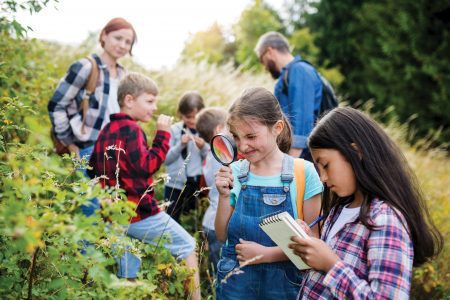 For Tom Murtha, a Wenonah resident, research isn’t necessary to tell him what he already knew: The experiences you have at summer camp stay with you throughout life.
For Tom Murtha, a Wenonah resident, research isn’t necessary to tell him what he already knew: The experiences you have at summer camp stay with you throughout life.
“Something as simple as solving a conflict with another kid over dominoes – I learned that sometimes emotions supersede logic, and that hurtful things are said unintentionally,” Tom says. “I grew up on a 120-acre plot of land in Medford, despite it being an hour from my house. My summers at camp have, in every way, made me who I am today.”
What I Learned at Camp…
I can thank summer camp for so many aspects of who I am today. I met so many new people, many of whom were from other parts of the country or the world, and that got me interested in other languages. In college, when I studied in Cordoba and eventually became fluent in Spanish, I had camp friends in Spain to give me advice!
Annabess Ehrhardt, Marlton
The first time I did the high ropes course, I cried the whole time I waited for my turn in my harness, and I only went up because I wholeheartedly trusted the counselors guiding me through it. By the time I made it through the course, I had completely overcome my fear of heights. That experience stayed with me, and I am so much more confident and ambitious because of my time as a camper.
Ella Burke, Audubon
As a counselor, I love seeing how much my campers grow in just 8 weeks and knowing that my encouragement helps them take risks. One summer, I had a camper who had never done any sort of gymnastics and was pretty nervous about trying it. With my help, by the end of the summer she had learned to do a forward roll and was almost able to do a cartwheel on her own. Seeing her work so hard to accomplish something was so rewarding.
Lauren Petrone, Cherry Hill
Going to overnight camp was my first time away from home, which was really hard at first. There were a lot of nights when I was homesick, or when I had problems with other kids and I just wanted to be home instead of dealing with it. But instead of letting those things ruin the great parts of camp, like exploring new things and making new friends, I figured out how to overcome it. Years later when I went to college, and then when I moved out on my own after that, I already knew how to handle the change.
Rachel Davidson, Moorestown


